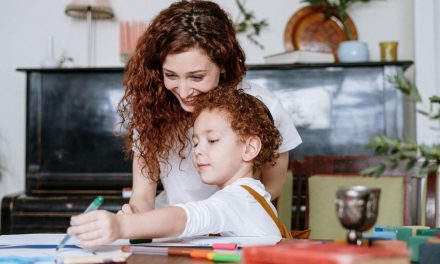How do we motivate ourselves toward new tasks and activities that we know will serve us? Especially when these endeavors inevitably bring us challenges. And yet, it is through these challenging moments that we are given the opportunity to learn, grow, and evolve. Agreed?
But then, how does it work with your children? What happens when they face these challenges, with the opportunities that come from such growth moments?
Typically, such challenges bring some discomfort in the form of more effort, stress, or anxiety. And of course, the level of discomfort varies dependent upon the situation and the child’s temperament.
Regardless, upon facing these challenges and the stress that comes with them, the question becomes: What do we focus on? One option is to focus on the stress and anxiety and let that consume our attention. Many children and adults default to this. Then, we naturally want to seek comfort, ease, and relief from the anxiety. Here, our focus is on the avoidance of anxiety.
Option two finds us on another path. We learn to accept that stress or anxiety is part of the process, and we focus instead on the learning, growth, and skill development that unfolds with effort. We embrace the challenges very differently. Here, our attention tends to skip over the ‘stress’ and instead gets consumed with the task at hand and efforts to do our best.
How These Patterns Show Up in Your Child’s Life
Focus On Stress and Try to Move-away From Stress.
We know that children who establish a pattern of avoiding anxiety and discomfort (as a habitual way of dealing with challenges) end up becoming less and less willing to test themselves. They run from difficult tasks, avoid situations that could cause anxiety, and their skills and esteem shrink accordingly. There is little possibility of developing competence, the ability to handle stress, or learning skills that allow them to handle frustration and difficulty.
“To get stronger, we must be exposed to life that requires more of us. This is true regardless of the age, and compels us, as parents, to stop trying to manage every moment of our child’s life… unless weakness is our goal.”
– Dr. Randy Cale
How does this evolve? Once the focus turns toward noticing anxiety over growth, then their brains obsess upon what will cause anxiety or stress. They think about the challenge in advance, then FEEL the stress, and get consumed with seeking relief from the discomfort. This all happens BEFORE engaging in the activity or dealing with the challenge. In essence, they learn an avoidance strategy when facing challenges, and this ultimately will thwart growth and learning.
It gets a bit worse when we are motivated by such strategies. Why? Because inevitably, additional challenges become part of life and, in essence, forced upon us. The same is true for children. With the avoidance of stress approach, we now reluctantly move forward in these challenges while focused upon avoidance of stress…rather than sinking our teeth into growth and learning.
This creates an escalating world of fear, stress, and anxiety as we try to cope with our blindness to the one seemingly obvious law of the universe: That which we focus upon expands. Thus, the more we focus on the thing we are trying to avoid (i.e., stress and anxiety), the more that THING grows and expands. Thus, we see that this strategy will ultimately lead to more fear, less growth, and less enjoyment of life.
Focus On and Move-toward Learning, Growth & Skill Development:
Children who value growth and learning tend to move through life quite differently. They more often ignore the stress associated with challenges and become consumed with the growth and learning process. They keep track of skills developed and get excited about accomplishments and give it their best.
There is inner cherishing of feeling the improvements, the learning, and the growth. This mindset creates a motivation that is forward-focused, and confidence emerges that is not situation dependent.
Over time, this approach leads to less stress and anxiety. Why? Because these children have learned that the sense of fear behind the stress is simply going to pass. It is not based on anything real…in other words, there is no real threat here. Moving through it, and focusing elsewhere, proves that the angst will pass. This knowledge cannot be taught but must be lived.
Such wisdom then enables them to tackle more, engage more in life and seek more challenges. The results are shown in terms of success and happiness, as well as the willingness to ‘lean into’ more opportunities as life moves along.
Next week, I will offer four pointers that will help you parent in ways to promote the ‘move-toward’ approach in life and help your children get more from the inevitable challenges ahead.














